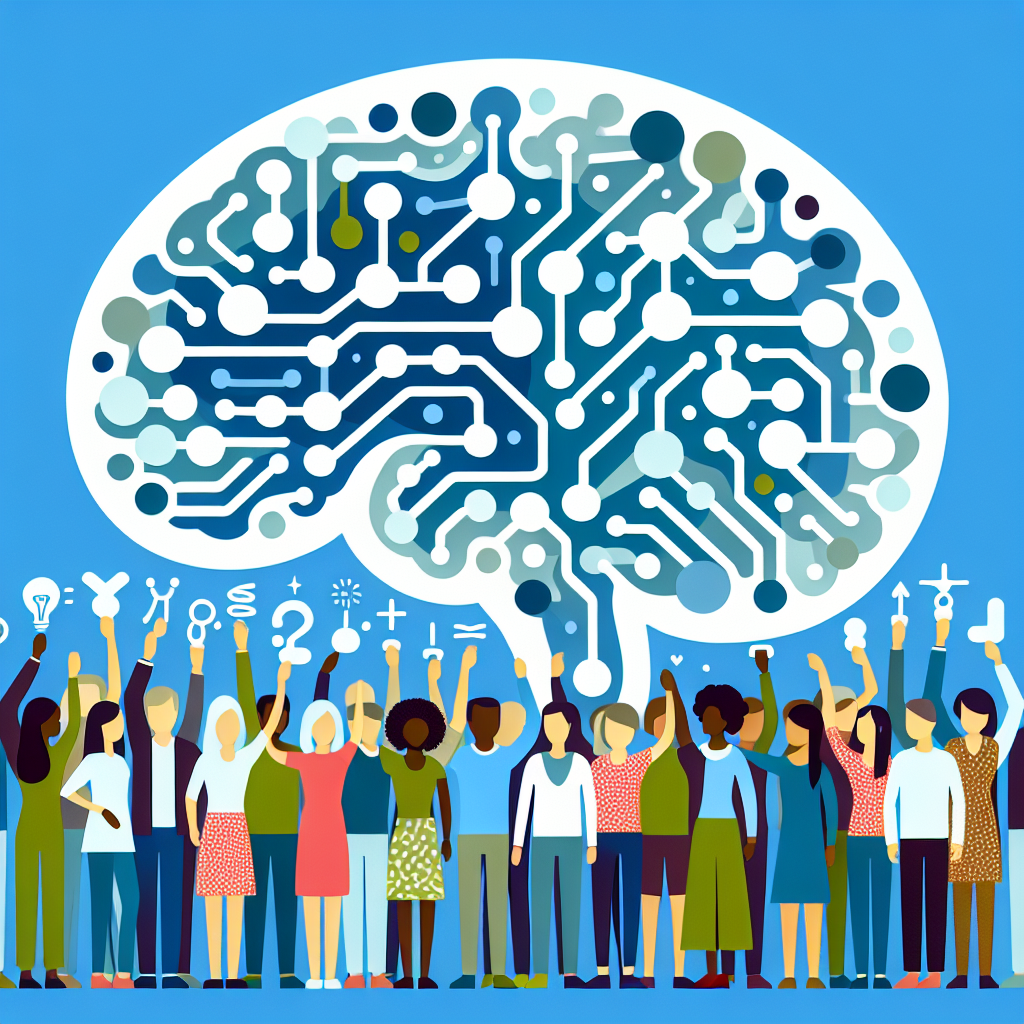Artificial intelligence (AI) has rapidly advanced in recent years, transforming industries and changing the way we live and work. One of the most exciting aspects of AI is its potential to drive social change and promote altruism. From healthcare to education to disaster response, AI is being used to improve the lives of individuals and communities around the world.
AI and Altruism in Healthcare
In healthcare, AI is being used to improve patient outcomes and reduce costs. For example, AI-powered algorithms are being used to analyze medical images and assist doctors in diagnosing diseases such as cancer. By quickly and accurately identifying abnormalities in medical images, AI can help doctors make more informed treatment decisions, ultimately leading to better patient outcomes.
AI is also being used to personalize medicine and provide individualized treatment plans for patients. By analyzing large amounts of data, AI can identify patterns and trends that can help doctors tailor treatment plans to each patient’s unique needs. This can lead to more effective treatments and better outcomes for patients.
In addition, AI is being used to improve healthcare access in underserved communities. For example, telemedicine platforms powered by AI are making it easier for patients in rural areas to connect with healthcare providers and receive medical advice and treatment. By leveraging AI, healthcare organizations can reach more patients and provide better care to those who need it most.
AI and Altruism in Education
In education, AI is being used to personalize learning experiences and improve student outcomes. For example, AI-powered tutoring systems can adapt to each student’s learning style and pace, providing personalized feedback and support. By tailoring instruction to each student’s needs, AI can help students learn more effectively and achieve better academic outcomes.
AI is also being used to improve access to education for underserved populations. For example, AI-powered language translation tools are making it easier for students who speak different languages to access educational content and participate in online courses. By breaking down language barriers, AI is helping to make education more inclusive and accessible to all students.
AI and Altruism in Disaster Response
In disaster response, AI is being used to improve emergency preparedness and response efforts. For example, AI-powered predictive analytics tools can analyze data from past disasters and predict where future disasters are likely to occur. By identifying high-risk areas, AI can help emergency responders allocate resources more effectively and respond more quickly to emergencies.
AI is also being used to improve communication and coordination during disasters. For example, AI-powered chatbots can provide real-time updates and information to residents in affected areas, helping them stay informed and make informed decisions during emergencies. By leveraging AI, emergency responders can better coordinate their efforts and provide more effective assistance to those in need.
FAQs
Q: How is AI being used to promote altruism in society?
A: AI is being used in a variety of ways to promote altruism in society, including in healthcare, education, and disaster response. By leveraging AI, organizations can improve access to services, personalize experiences, and respond more effectively to emergencies, ultimately benefiting individuals and communities.
Q: What are some examples of AI-powered altruistic initiatives?
A: Some examples of AI-powered altruistic initiatives include AI-powered tutoring systems in education, AI-powered medical imaging analysis in healthcare, and AI-powered predictive analytics tools in disaster response. These initiatives are helping to improve outcomes and accessibility in their respective fields.
Q: How can individuals support AI-powered altruistic initiatives?
A: Individuals can support AI-powered altruistic initiatives by donating to organizations that are using AI for social good, volunteering their time and expertise to help develop AI solutions, and advocating for policies that promote ethical and responsible AI use. By supporting these initiatives, individuals can help drive positive social change and promote altruism in society.
In conclusion, AI has the potential to drive social change and promote altruism in a variety of fields. By leveraging AI, organizations can improve access to services, personalize experiences, and respond more effectively to emergencies, ultimately benefiting individuals and communities. As AI continues to advance, it is important for society to harness its power for good and ensure that it is used in ways that promote equity, inclusion, and social well-being. By working together, we can harness the power of AI to create a more altruistic and compassionate world.

